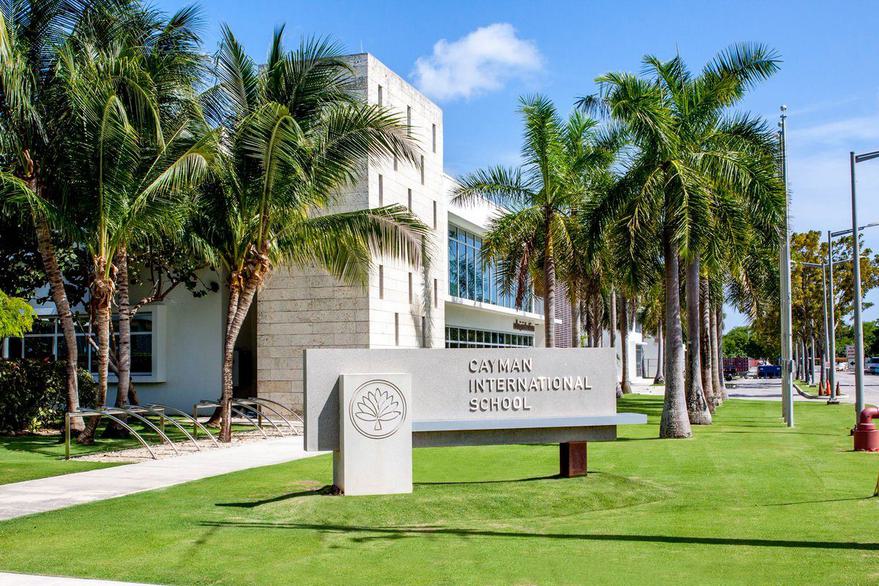On This Page
Introduction
The Ministry of Education recognised years ago that it needed to conduct regular support visits to all schools in the Cayman Islands. For preschools, it wanted to make sure that children were being better prepared socially, emotionally and academically for their entry into compulsory school at the age of five. There are now standards that must be met on how school staff interact with children and ensure that the children are being properly stimulated through exposure to age-appropriate activities. In all schools there is now a requirement that a SENCo be on staff so that children with developmental delays or difficulties can be identified early and given help so that they are better prepared for primary school and life beyond.
Cayman has a selection of excellent private schools, each following either the British or American curricula. In both systems the main student intake is for Kindergarten/Reception (British) and Pre-K (US) when the child is four, turning five during the school year. The most popular schools have very few places available in Year 1, so think carefully if you are offered a place and decide to delay your child's entry for a year. Students can then remain in their chosen school up to Year 13 (UK system) and Grade 12 (US system). Schools following the UK system take GCSEs and A Levels and the US system offers either the IB programme or prepares students to take the Scholastic Aptitude Test (SAT) and attain a US High School Diploma. Some schools also offer Advanced Placements (APs).
British Education System
Children entering the British school system must be four years old by 1st September. They enter Reception/Kindergarten and then stay in primary school until the end of Year 6 or the year they are turning 11 (a total of seven years). They then go to high school for Year 7 through to Year 13. In Year 11 (when they are 16) students take GCSEs or IGCSEs and all students are required to take a science and a language, as well as maths, English language and English literature. Many international schools that teach the British curriculum often offer IGCSEs, which are widely considered to be more rigorous than the GCSEs. After finishing GCSEs, the two-year A Level programme commences in Year 12 and is completed in Year 13 when students are turning 18. However, students studying in Cayman are expected to take AS Levels in Year 12 and their results are used as a benchmark for universities to predict how the student will do in their A Levels. Since government high schools in Cayman finish at 16, and do not offer A Levels, Government students will often move to the British system for the start of year 12.
(Note: Most Montessori schools that extend into Primary follow the Montessori philosophy, whilst aligning with UK curriculum standards).
Exams - Students usually take between 8 and 11 GCSE subjects, and they need to have passed Maths and English and get three A Levels with grades A*-E to get into a university. Students will often start doing four A Levels and then drop their weakest subject at the end of AS Levels. Exams at A Level are graded A*, A, B, C, D and E. However, a D and/or an E grade are both not considered a pass for a Cayman Islands Government scholarship for university. The minimum required is a C in all three subjects.
Below are the private schools who follow the British curriculum.
American Education System
Most American schools in Cayman offer a Pre-K3 programme, so your child can start at the age of four. These children will be given preference for Kindergarten places when other children start at the age of five. Children then move up to Grade 1 when they are six and stay in school for a total of 13 years, graduating at 17 or 18, when they are in Grade 12. They usually graduate with an American High School Diploma and students are taught the ins and outs of sitting SATs (Scholastic Aptitude Test). Cayman International School (CIS) also offers the International Baccalaureate diploma (IB) for students in Years 11 and 12. Triple C School offers Advanced Placement (AP) courses.
Exams - To graduate with an American High School Diploma, students need to obtain at least 20 credits, split between English (4), Social Studies and a Foreign Language (6), Math (6), Arts/Drama/Music (1) and Physical Education (2). Credit requirements for graduation are different for every school, and will depend on how a school’s curriculum is structured. Having said this, all have standard requirements for core subjects such as English, Math, Science and Social Studies, and then elective credits for other classes. Parents should familiarise themselves with the credit requirements of their child’s school, keeping in mind that some will require a minimum Grade Point Average (GPA) for graduation.
The GPA is the grade (number/percentage) representing the average value of the accumulated final grades and ranges from 0.0 to 4.0. For example, 4.0 = A, 3.0 = B, 2.0 = C, 1.0 = D and 0.0 = F.
Most universities in the United States will require a specific High School GPA before a high school graduate can even be considered for admittance, so it is very important for parents to be aware of what the requirements are for any college or university to which their child may be applying. Students should also be aware of this if hoping to secure a scholarship.
The International Baccalaureate at CIS
The IB Diploma Programme (DP) is offered at Cayman International School (CIS). The curriculum is made up of six subject groups plus the three core components a) Theory of Knowledge (TOK); b) Creativity, Activity and Service (CAS) and c) Extended Essay. Students must complete all three core components and also choose one course from each of the six subject groups in order to complete the full IB Diploma. The six subject groups are: Language and Literature, Language Acquisition, individuals and societies, Sciences, Maths and the Arts. The subject choice from the arts can be replaced with a second subject in another group if needed for university entry. Three subjects are taken at Higher Level, and three at Standard Level. All subject courses are two years long, and students sit the final exams for the Diploma Programme in May of Grade 12 (Year 13). They are graded from 7 to 1 (7 being the highest) for each of their six subjects.
Additionally, the Theory of Knowledge and Extended Essay are also graded, and together can add up to an additional 3 points. CAS is graded as a pass/fail. The maximum score one can therefore achieve is 45. The pass requirement is 24 points, and anything over 34 is considered very solid. Many universities, particularly in the UK, will publish the IB scores they require for entry to their degree programmes. These vary depending on the course and the institution, and competitive programmes at good universities can require much more than 24 points for entry. For example, Architecture or Engineering will often have a score requirement in the high 30s, and many courses at Oxbridge or other Russell Group universities may require 40 points or higher.
Related Articles
Cayman Islands National Curriculum
Students in schools which teach the Cayman Islands National Curriculum, which has been adapted from the English National Curriculum, study English, Mathematics, Science, Art and Design, computing, design and technology, Spanish, life skills, music, physical education and religious education. In Year 10 they start a two-year programme of classes (Years 10 and 11) in the core subjects of English, Maths, Science, EDPM (Electronic Document Preparation & Management), PE* and Life Skills* (*these do not count towards your child's five passes if they are moving on to a private school to do A Levels) and they are allowed to choose three additional subjects of their choice. The Caribbean Secondary Education Certificate (CSEC) examinations, commonly referred to as CXC examinations, are the same exams that are taken in Jamaica which is where many of our teachers in schools which teach the CI National Curriculum are from. Students take, on average, seven CXCs but students may have the option to take more. CXCs are taken by students after five years of secondary school, usually at the age of 16, at the same time or instead of GCSEs. CXCs are graded I-VI with Grades I-III being considered the equivalent of a GCSE pass at A*-C or 9-5 in the newer GCSE exams. For example, a Grade I result means you have attained a comprehensive grasp of the subject, and a Grade VI result means you have attained a very limited grasp of the subject.
If a student reaches the required level at CSEC, or equivalent, they may also be given the option of taking a Caribbean Advanced Proficiency Examination (CAPE) subject, which is the Caribbean equivalent of an A Level. The grading system is similar to CXC exams, with Grade I representing an excellent performance, whereas Grade VII represents an unsatisfactory performance. Grades I–III are the equivalent of an A*-C at A Level. All Government school students are then automatically enrolled in the compulsory Year 12 (one academic year) programme at the Cayman Islands Further Education Centre (CIFEC), where they can take an array of business and technology courses (BTEC), get involved in work experience and internships, or retake CXC or GCSE exams to improve their grade standing. There is also the option for students to enrol in a ‘dual entry programme’ such as A Levels at St. Ignatius, Cayman Prep and High School or a *state boarding school in the UK, or attend the University College of the Cayman Islands and work on an Associate's Degree. After completing their Year 12 programme, students graduate from their original respective secondary schools at the compulsory school leaving age of 17. Those taking A Levels will carry on with their education until the age of 18.
Students who do not have the minimum five external passes (at CSEC or GCSE), including English and mathematics (after graduating from high school), may have the opportunity to be admitted to UCCI’s Pre-College Matriculation programme, where they can obtain transferable college credits. This programme allows students to take foundation level courses in Maths, English and college skills in order to prepare students to transition into an Associate's Degree programme.
In addition to Cayman Academy, the Cayman Islands Government high schools follow the Cayman Islands National Curriculum and offer CXC exams in Year 11.
Montessori Education System
There are two Montessori schools in Cayman that offer the Montessori schooling system beyond preschool. Village Montessori and Montessori By The Sea teach children up to the age of 12. Both implement an enriched Montessori elementary curriculum that is geared to meet Cayman Islands National Curriculum Standards. Also included are life skills education along with specialised instruction in Spanish, ICT, physical education, the arts and music. One is located in Prospect, across from the beach, and the other in Camana Bay. See pages 120 and 123. (Note: Most Montessori schools that extend into Primary follow the Montessori philosophy, whilst aligning with UK curriculum standards.)











